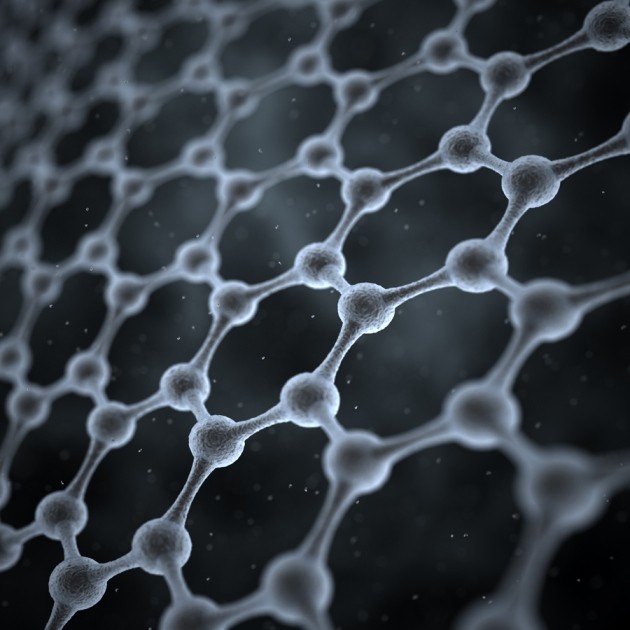
- Select a language for the TTS:
- UK English Female
- UK English Male
- US English Female
- US English Male
- Australian Female
- Australian Male
- Language selected: (auto detect) - EN
Play all audios:
One-atom-thick material blocks 'bullet' strikes but allows protons to pass through. Access through your institution Buy or subscribe This is a preview of subscription content,
access via your institution ACCESS OPTIONS Access through your institution Subscribe to this journal Receive 51 print issues and online access $199.00 per year only $3.90 per issue Learn
more Buy this article * Purchase on SpringerLink * Instant access to full article PDF Buy now Prices may be subject to local taxes which are calculated during checkout ADDITIONAL ACCESS
OPTIONS: * Log in * Learn about institutional subscriptions * Read our FAQs * Contact customer support REFERENCES * Hu, S. et al., _Nature_ http://dx.doi.org/10.1038/nature14015 (2014) *
Lee, J.-H., Loya, P. E., Lou, J. & Thomas, E. L. _Science_ 346, 1092–1096 (2014). Article ADS Google Scholar * Li, H. et al. _Science_ 342, 95–98 (2013). Article CAS ADS Google
Scholar * Zurutuza, A. & Marinelli, C. _Nature Nanotechnol._ 9, 730–734 (2014). Article CAS ADS Google Scholar Download references Authors * Richard Van Noorden View author
publications You can also search for this author inPubMed Google Scholar RELATED LINKS RELATED LINKS RELATED LINKS IN NATURE RESEARCH Ten years in two dimensions 2014-Oct-06 Graphene: The
quest for supercarbon 2013-Nov-20 Graphene makes light work of optical signals 2013-Sep-15 Chemistry: The trials of new carbon 2011-Jan-05 RELATED EXTERNAL LINKS RIGHTS AND PERMISSIONS
Reprints and permissions ABOUT THIS ARTICLE CITE THIS ARTICLE Van Noorden, R. Bullet-proof armour and hydrogen sieve add to graphene’s promise. _Nature_ (2014).
https://doi.org/10.1038/nature.2014.16425 Download citation * Published: 27 November 2014 * DOI: https://doi.org/10.1038/nature.2014.16425 SHARE THIS ARTICLE Anyone you share the following
link with will be able to read this content: Get shareable link Sorry, a shareable link is not currently available for this article. Copy to clipboard Provided by the Springer Nature
SharedIt content-sharing initiative




